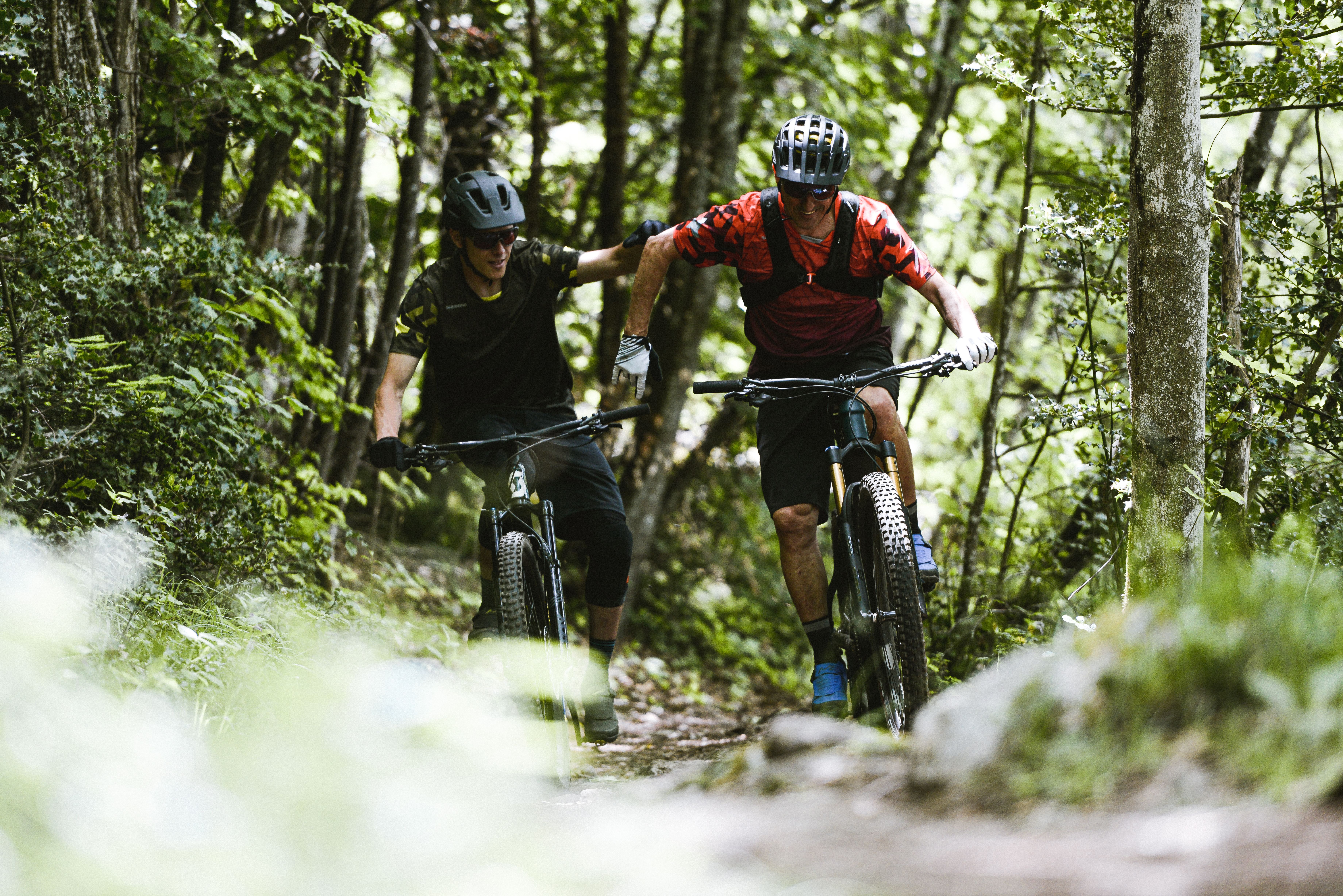As an industry we are constantly on the alert for any international, national or local regulations that try to separate electrically assisted bikes from pedal-only cycles, because separating them in any way does huge damage to the diversity of cycling. A new proposal from the Norwegian Government does just that, and we are now working with our colleagues in the country to push back against possible legislation based on assumptions and prejudice against electrically assisted mountain bikes.
In recent years electrical assistance has become the cycling sector’s most effective new tool in allowing more people to take up cycling. It removes the perception that cycling requires a degree of physical fitness and it allows people of all abilities to try many forms of cycling.
But that technology is of limited value if people don’t also have places to ride – fun and welcoming environments for recreation and sport or safe and direct routes in town. This applies to mountain biking, gravel, e-mountain and e-gravel bikes, also making trail networks more accessible to e-bike users, which might otherwise be exclusively reached by car.
Now our colleagues at IMBA Europe and their member the Norwegian Organisation for Mountain Biking (NOTS) has informed us of a proposal to modify the Norwegian Motor Traffic act. This law, regulating the use of motor-vehicles outside of traffic environments and cultivated areas, will for the first time affect the use of e-bikes, including those pedal-assist models officially regulated as bicycles and not motor vehicles by the traffic code according to their power output and top speed. The proposal says that e-bikes will be banned from all trails, their use will be restricted to specified roads and designated general paths only, ending access to almost all trails enjoyed by mountain bikes. This would wipe out many highly regarded trail centres unless a municipality to make an exemption, a process that would be needed for every trail in the country.
The Motor Traffic committee says “The committee sees a risk that increased use of e-bikes in the countryside and increased range of the e-bikes could lead to more conflicts with nature and outdoor life considerations in the future. Electric bicycles can transport more people into areas that are otherwise characterized by little human disturbance, and will also help to increase the challenge of wear and tear that cycling entails today. For that reason, we are initially skeptical that the use of electric bicycles should be possible everywhere.”
Why this matters
In principle our industry doesn’t accept any difference between bicycles and electrically assisted bikes at the point of use. Once that distinction is made in any legal framework it opens up a precedent. We have fought the same battles across the continent on topics as diverse as insurance, helmets, speed limits and countryside access and in most cases we have won the argument that the sub-25kmph e-bike should not be treated in any other way than as a bicycle. So this matters to us in a much wider context than Norway.
Secondly we really believe that when policy makers propose policy based on assumptions and prejudice they should be challenged. The justification for the change proposed has no basis in reality, no basis in evidence and contains numerous prejudices about mountain biking and e-bikes, that appear to have been placed in the consultation by sources without understanding the role electrical assistance plays in helping more people enjoy mountain biking. There is extensive evidence that mountain biking creates minimal disturbance or wear and tear in the countryside, especially compared to industrial forestry and intensive tourism. Cycling is very good for dispersing tourism and reducing impacts rather than the assumptions from this committee.
How to offer support?
IMBA Europe have come out with a thoughtful and sensitively worded statement on the topic which we wholeheartedly support. Through CIE’s Mountain Bike Interest Group we are now reaching out to business stakeholders in Norway to offer our support and encouragement in any campaign to oppose this proposal. If your brand would like to know how to support us or to join our MTB Interest group please contact us via info(at)cyclingindustries.com
Extracts from the IMBA Europe statement
At heart, IMBA Europe and the mountain bike community we represent care deeply for nature and are concerned for the environments in which we exercise our activity. That is why we believe that a cornerstone of any nature preservation or conservation effort must be ensuring that the public has the opportunity to appreciate conservation efforts by providing access for responsible recreation. Policies must not limit responsible behaviour or they risk widespread violation and a breakdown of trust among all parties and stakeholders.
We approve of taking steps to limit and reverse any damage caused by e-bikes in consultation with local representatives of the community. Local mountain bike representatives understand the terrain and the community and can help implement collaborative solutions that limit the impact of e-mountain bikes on sensitive areas. A primary measure to address sustainable outdoor recreation is through improvement of the recreational infrastructure in the form of sustainable trails, a subject on which IMBA is a recognized international leader. Policies that seek to improve outdoor recreational infrastructure benefit all users while simultaneously protecting natural spaces.
A more nuanced and effective policy would respect local practice and engage with the local community to address any concerns over the impact of outdoor recreation. Indeed, the framework of the current, functioning law treats restricted e-bikes as regular bikes, in all forms of traffic and terrain, yet allows for local restrictions where necessary.
For the full IMBA_EU statement click here https://www.imba-europe.org/press/
Share on Linkedin Share on Facebook Share on Twitter Subscribe to our newsletter
